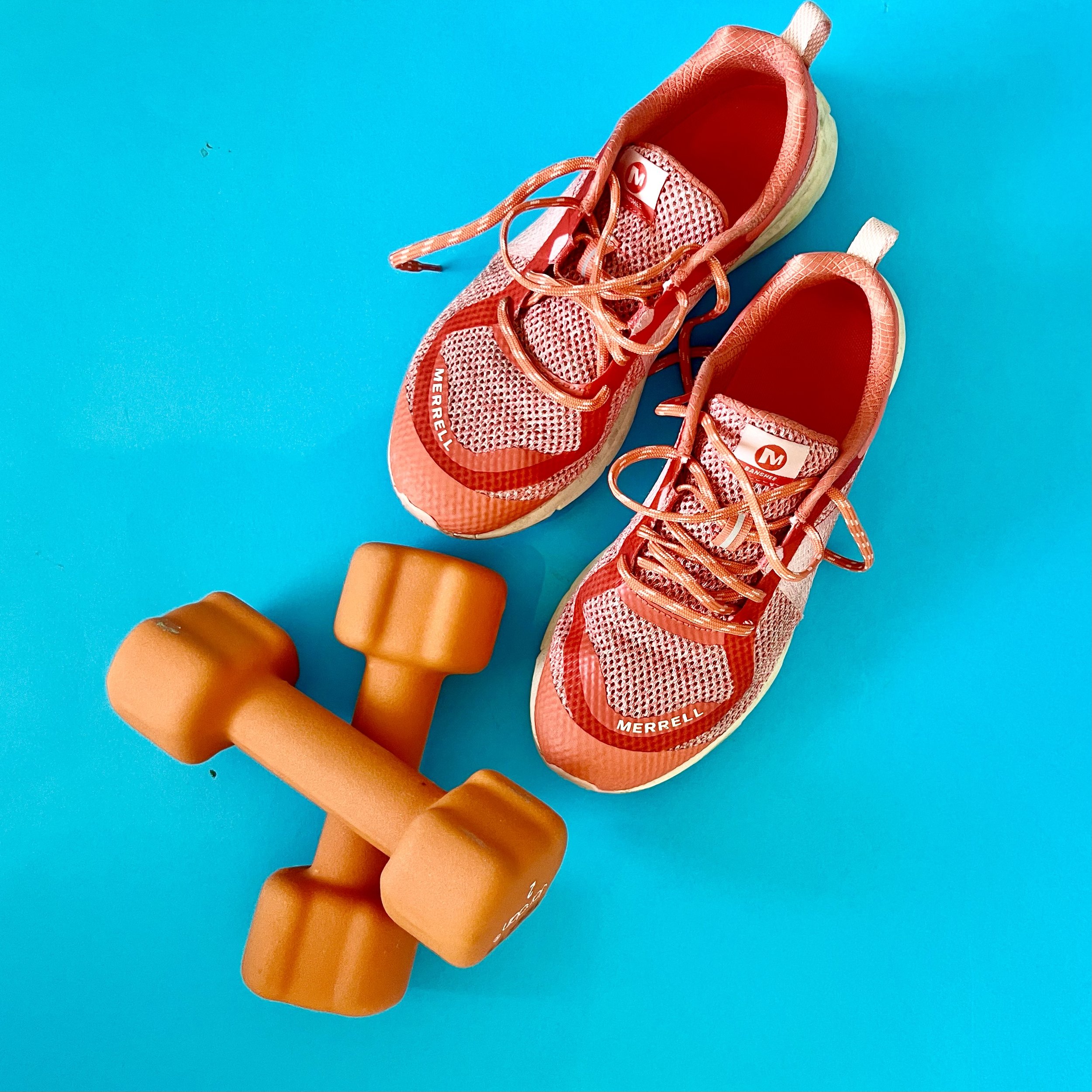Lifestyle changes to manage menopause weight gain & loss
Physical activity and exercise for menopausal women
Now, more than ever, movement really matters! With a little action, and more than a little willpower, you can grab your body back from the grips of menopause mayhem.
Sadly, from around 40 years onwards, the speed at which the body burns calories, starts to drop. Far too many of us do too little exercise so start to pile on the pounds. A Public Health England study published in 2016 found that 63% of women in middle age are overweight or obese! Time to find your exercise and stick with it.
If you’ve never enjoyed physical activity and fallen out of action, start gently and slowly build up. You should aim towards walking 10,000 steps a day. Find a friend and enjoy a chat while you walk. You do however need to move all parts of your body, if you enjoy dancing, find a Zumba class or just put on your favourite music and dance in your kitchen. We did a series of fitness workouts for beginners with fitness coach, Baz Moffat, that you can do in the comfort of your home.
Watch our video Easy Exercise for Menopause - Parts 1, 2 and 3.
Find a menopause trained health and fitness coach
With our sister business Menopause Movement, we have trained over 200 independent fitness professionals who can help you build the confidence to become more physically active. into and beyond menopause. The evidence shows that it’s never too late to start.
Search our Menopause Movement Directory to find menopause trained fitness professionals, yoga teachers, Pilates trainers, or strength and conditioning coaches.
Find the joy in movement!
Stress less to avoid menopause weight gain
As if the menopause isn’t stressful enough as we flush, worry, lose sleep and gain weight, we’re told that we need to avoid stress to avoid weight gain! We release cortisol when we’re stressed, making us crave sweet or savoury treats. Cortisol persuades your body that it’s not going to see food any time soon, so as well as luring you towards those junk treats, it lays down fat stores, making you gain weight. Deal with this stress, find a stress-busting activity. Exercise, yoga, mindfulness, you pick.
Take up knitting, pick up a Rubik’s cube or do a crossword!
Eating can be an emotional response to life’s situations and there’s lots to respond to now. We bet that when snacking is an emotional response you reach for chocolate, rather than a celery stick. Recognise when you do this. If it’s a case of needing to fill an emotional gap, do something with your hands that’ll take your mind away from the biscuit tin or the tube of Pringles, and as we know, one is never enough! Busy hands keep minds busy. And if your hands are busy, you can’t use them to snack!
Reach for the water and not a chocolate biscuit
Your metabolism needs water. Sometime we grab something sugary or salty – mistaking thirst for hunger - when all we need is a glass of water. Stay hydrated, the benefits of drinking water during menopause are immense.
Menopause, alcohol and weight gain!
Alcohol contains seven calories per gram, almost as much as fat, but we often ignore or overlook these. Download the App ‘One You Days Off’. Personalise it with your typical weekly alcohol tally, it calculates the level of risk linked to your drinking, the calories consumed and money spent. The app encourages you to have at least 3 alcohol-free days off each week as advised by The British Liver Trust to avoid a fatty-liver. You'll receive prompts each evening to remind you when it’s a drink free night. Quite sobering. Another reliable online alcohol calculator can be found at Drinkaware.co.uk.
Alcohol calorie counter to control menopause weight gain
There’s no denying that alcohol contains calories that will settle around your stomach. Drink Aware have a handy calorie calculator that will show you what calories are contained in different drinks.
Sleep
Blood sugar levels can soar after a poor night’s sleep, leading to weight gain. Sleep, exercise and diet are a holy trinity that will help manage weight. Unfortunately for many women, sleep is affected as night sweats and insomnia routinely disrupt night time slumber.




